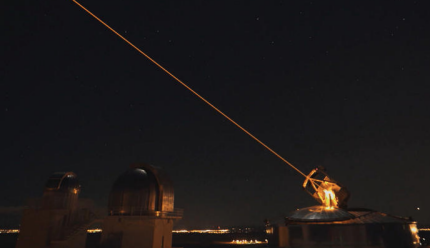DOD to show off latest tech at Lab Day
Next week the Pentagon will host a display of more than 100 research projects and tech-centric success stories.

AFRL will showcase its satellite-tracking Directed Energy and Electro-Optics for Space Superiority.
The Defense Department will host the first DOD Lab Day at the Pentagon on May 14 to increase awareness of research projects and tech-centric success stories. The event will see senior Pentagon leaders, program sponsors and managers, members of Congress and students from various science, technology, engineering, and mathematics (STEM)-focused high schools gather to view demonstrations by DOD branch engineers on solutions that provide the military with an edge a release stated.
The event in the Pentagon courtyard (rain date May 15) will feature more than 100 innovations in fields ranging from advanced weapons to disaster relief.
Members from all the service branches will be present along with host Frank Kendall, under secretary of Defense for Acquisition, Technology, and Logistics. Deputy Secretary of Defense Bob Work will deliver a speech at the opening ceremony.
"We're really excited about this event," said Maj. Gen. Tom Masiello, commander of the Air Force Research Lab commander, which will be participating. "The DoD labs are vital to the Force of the Future. Our scientists and engineers are engaged in some of the most exciting S&T work in the nation. We intend to share how AFRL provides revolutionary, relevant and responsive support to our warfighters, helping to keep our Air Force the greatest in the world."
A few examples of the 26 technologies AFRL will display: the Automatic Ground Collision Avoidance System (Auto GCAS) which automatically takes control of a fighter aircraft to avoid impending ground; Battlefield Air Targeting Man-Aided Knowledge (BATMAN), a set of capabilities that enhance warfighter performance to making airmen lighter, smarter, and more lethal; Directed Energy and Electro-Optics for Space Superiority (DEOSS), which focuses on satellite tracking understanding threats in space; and the Android Tactical Assault Kit (ATAK), a mobile geospatial infrastructure that promotes unprecedented team collaboration and allows teams to share situational awareness information and collaborate in real time.
Masiello acknowledged the increased need for more science and technology investment especially in the context of maintaining a battlefield edge and technological superiority in emerging contested environments such as space, cyber and the electromagnetic spectrum.
NEXT STORY: Navy sets course on new cyber strategy